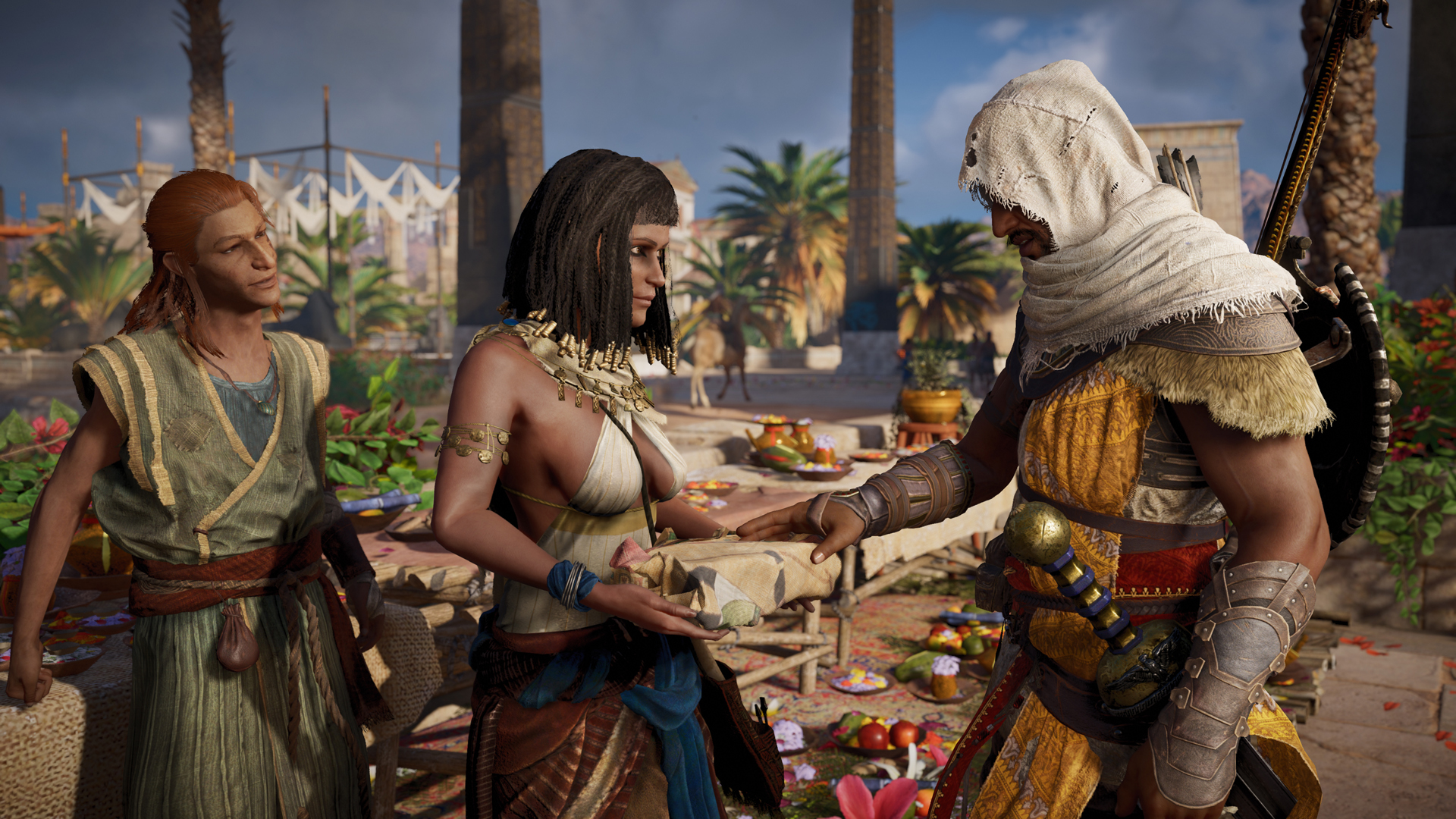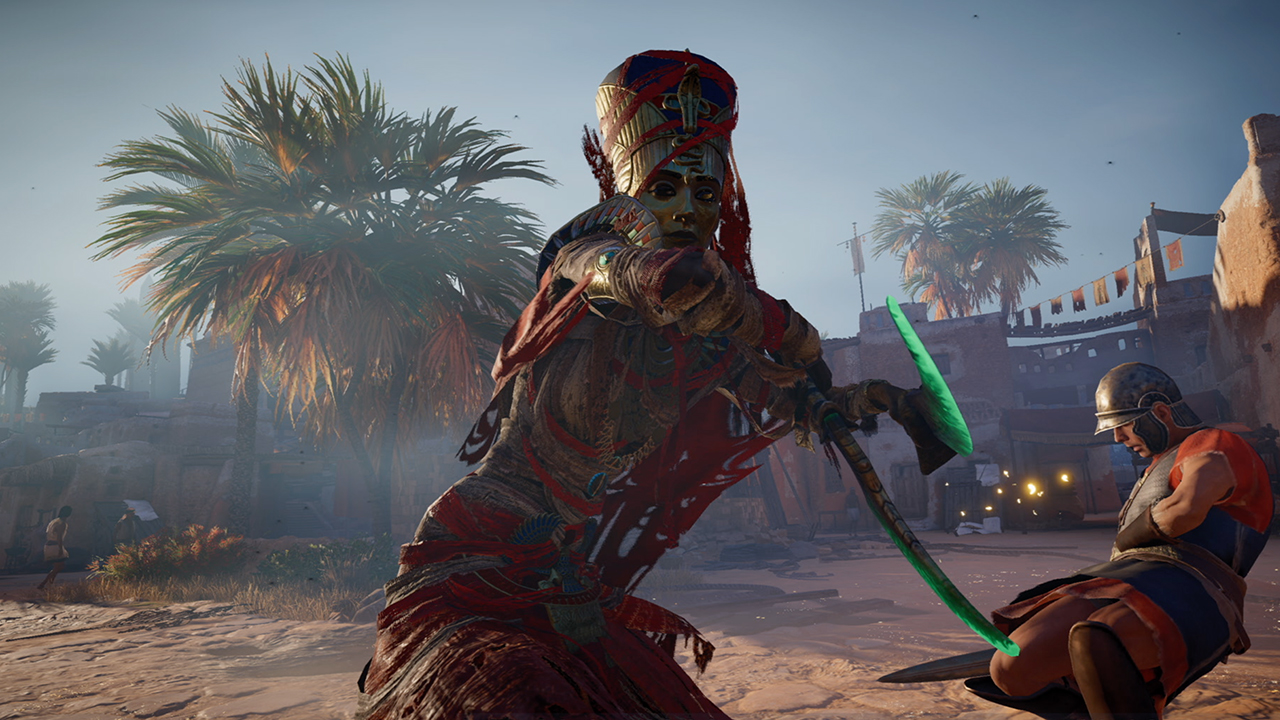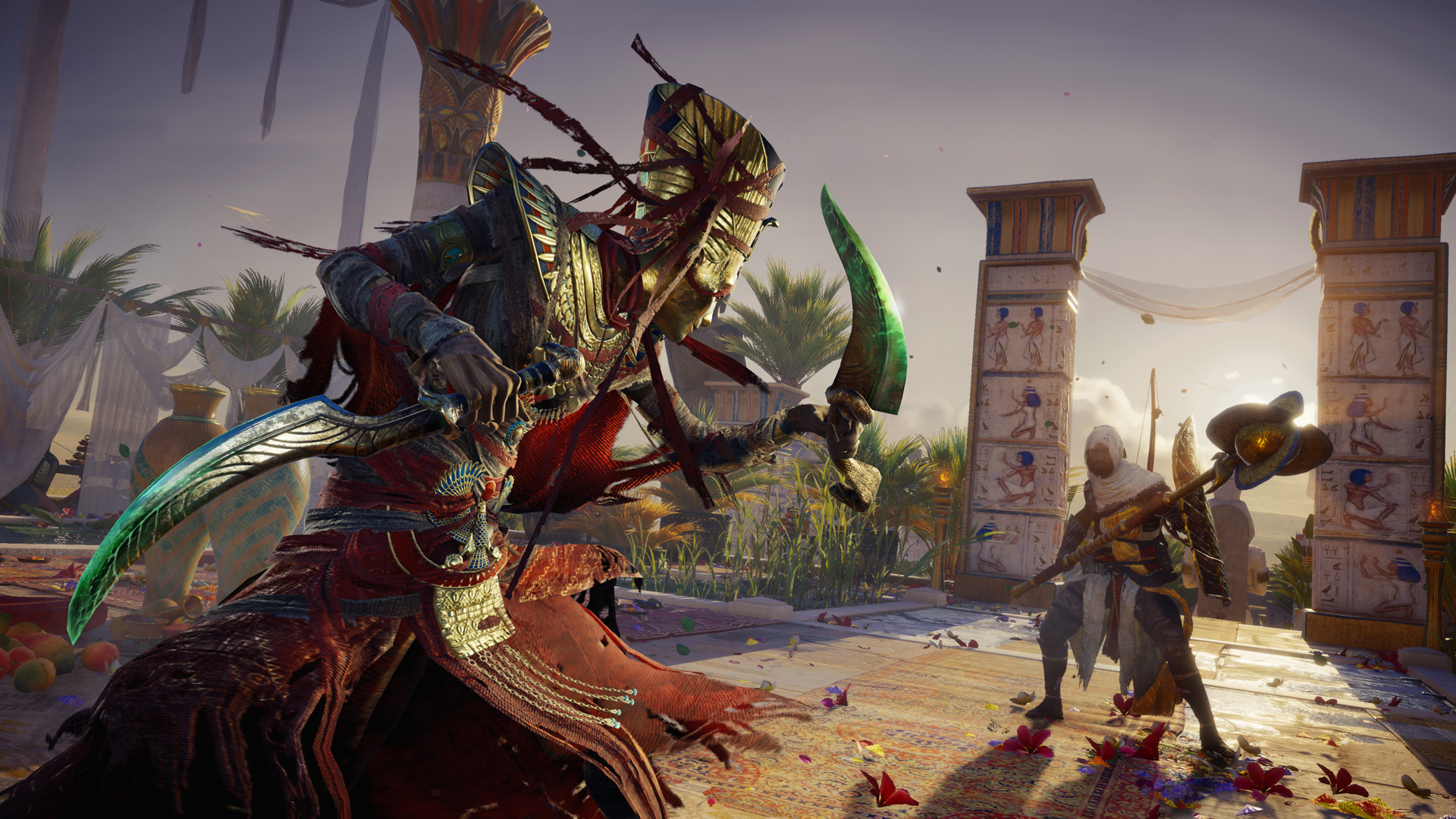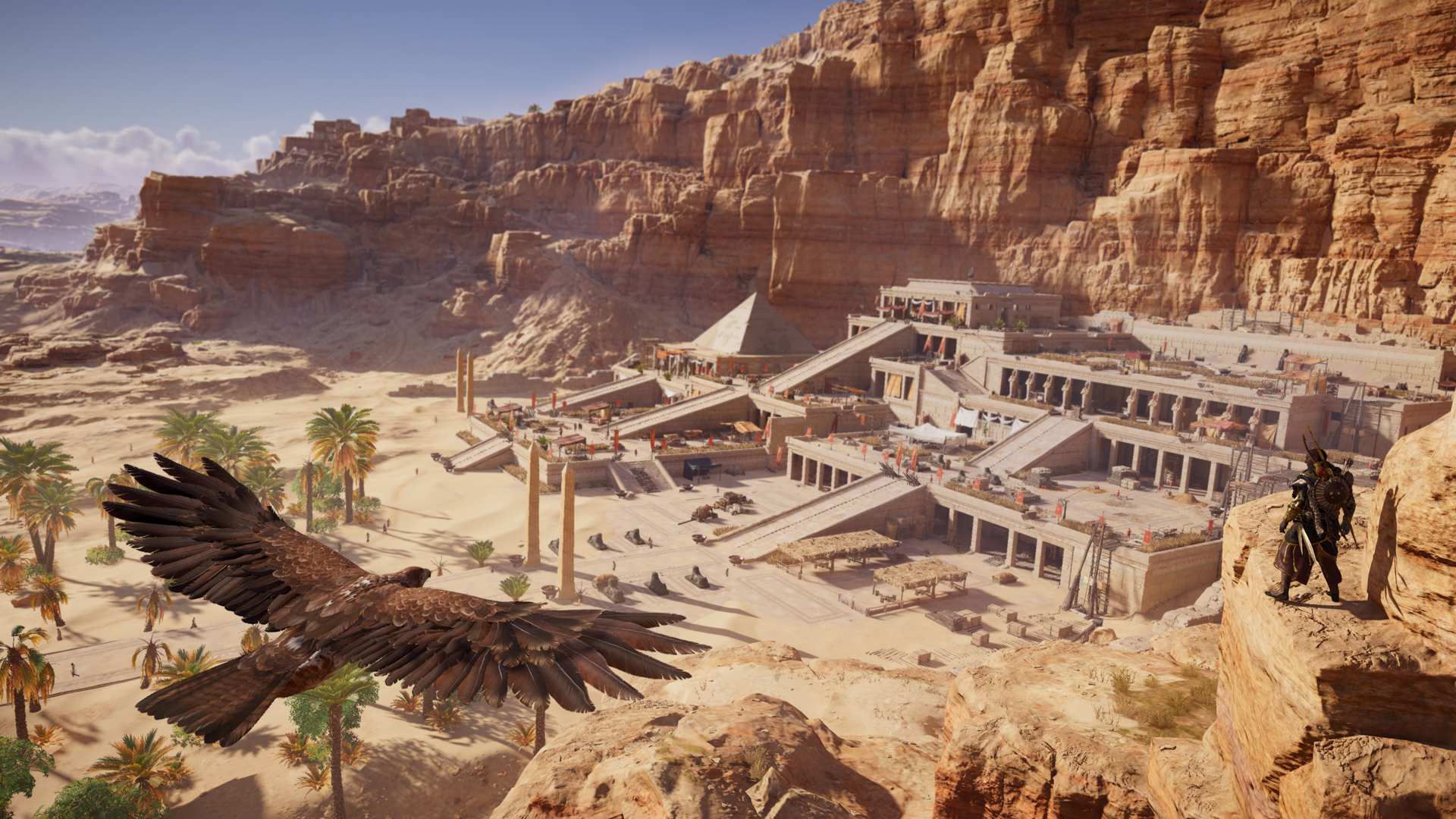Assassin’s Creed Origins’ idea of heaven involves giant scorpions, harpies, and flying ships
Origins' Curse of the Pharaohs DLC makes life literally hell for Bayek of Siwa
Turns out that dead pharaohs notice if you steal one of their ancient trinkets. They really don’t like it. In fact, they get so angry that they actually come back from the dead to kill a load of innocent civilians, thanks to an ancient curse and a desire to get their stuff back. It’s not going well in Thebes and it’s only going to get worse unless someone gives the pharaohs back their treasure. Thankfully, our favourite ex-medjay Bayek is on hand and is ready to kill a few undead souls in the new Assassin’s Creed Origins: Curse of the Pharaohs DLC.
Ubisoft has a tendency to go a little leftfield with some of its DLC - just look at Far Cry 3's Blood Dragon expansion - but despite initial concerns, Curse of the Pharaohs doesn’t go as off-the-wall as expected. There’s obviously a large dollop of the supernatural, but it’s nothing more far-fetched than what we’ve seen in the base game, especially as gigantic gods from Anubis to Sekhmet have been dropping in for a fight throughout the last few months in the Trials of the Gods. In a way, Curse of the Pharaohs channels this very spectacle, tasking Bayek with tracking down various relics that have been stolen from the pharaohs’ tombs, causing them to send Phylake-esque undead gladiators called Pharaoh’s Shadows into the world of the living to seek revenge. Curse of the Pharaohs is actually something that the ancient Egyptians believed: they thought anyone who disturbs a mummy - especially a pharaoh - would be cursed for life. Poor Bayek.

Set in a new area called The Valley of Kings, your journey to appeasing the undead begins with fighting one of these Pharaoh’s Shadows, who looks strangely like Egyptian Queen Nefertiti… Oh wait, that’s because it is a version of her, seemingly furious because someone’s stolen the golden scarab from her throne. Defeating (or more specifically banishing) one of these Pharaoh’s Shadows earns you a new form of currency called Shards of a Star, and also lifts the curse associated with that Pharaoh. It’s not clear whether that Shadow could then return, or how many Shadows there are in total from the two hours I get to spend with the DLC, but with a run time of around 25 hours I’m sure there are plenty more undead threats to take on.

It’s a little strange that these Shadows are on a timer, though. You’re alerted to their emergence in the world of the living, but unless you hot-foot it over there to banish the creature back to the underworld, it’ll disappear again. And trust me, fighting against one, getting its health down to the last millimetres, only for it to disappear into the ether is infuriating. It simultaneously makes them feel elusive but also rather inconsequential. I was going to help save those villagers, but if they’re gone by the time my camel takes me there, what’s the point?
The afterlife has serious charms

But for now, I'm off to face Nefertiti and return her relic. As you’d expect with Assassin’s Creed Origins, it’s not simply a case of chucking the glittering beetle back in Nefertiti’s sarcophagus. It actually requires you to go to hell and back. But boy, when you see it you may never want to leave. Heading through a shimmering curtain in Nefertiti’s tomb allows you to pass into the afterlife, heading down a watery walkway, past some of Anubis’ goons, and into Aaru. In Egyptian mythology, Aaru is the heavenly paradise where Osiris rules, and has always been described as being boundless reed fields (Aaru is actually the Egyptian word for rushes).
Walking out and seeing all that golden wheat is a moment that defines the opening few hours of Curse of Pharaohs. Statues of Nefertiti rise into the sky as far as the eye can see, and a giant ship glides by seemingly floating on the reeds. Just watch out for the giant scorpions and the screaming harpies that swarm in the air, chanting curses and other unknowns at you as they attack. The whole place is steeped in Egyptian mythology, and the more you dig into who Nefertiti was, the more rewarding the whole place becomes too. But, regardless of whether you want to start diving into ancient Egyptian mythology rather than hay bales, the splendour of this new area is enough to get you hooked. It seems that every time you come back to Aaru it’ll be themed for the specific pharaoh you’re battling, so it’ll be a little delight every time you return to the underworld.

It’s only right that we head from this strange paradise back to the city of Thebes eventually. In contrast to the golden idyll of Nefertiti’s afterlife, the terracotta shades of Thebes look almost bland. Moving through the tightly-packed buildings feels more like an old-school Assassin’s Creed location than other areas of Origins’ map, making it all seem like a little nod to the series’ own ancestry - as well as the entirety of Egypt, of course.
Sign up to the GamesRadar+ Newsletter
Weekly digests, tales from the communities you love, and more
From the couple of hours I’ve played of Assassin’s Creed Origins: Curse of the Pharaohs, it looks like it’s going to make heading back into Ancient Egypt even more enjoyable. And deadly. Mostly deadly.
Assassin's Creed Origins: Curse of the Pharaohs is arriving slightly later than expected on March 13, on PS4, Xbox One and PC. You can buy it separately, but owners of the season pass will get it for free.

Sam Loveridge is the Brand Director and former Global Editor-in-Chief of GamesRadar. She joined the team in August 2017. Sam came to GamesRadar after working at TrustedReviews, Digital Spy, and Fandom, following the completion of an MA in Journalism. In her time, she's also had appearances on The Guardian, BBC, and more. Her experience has seen her cover console and PC games, along with gaming hardware, for a decade, and for GamesRadar, she's in charge of the site's overall direction, managing the team, and making sure it's the best it can be. Her gaming passions lie with weird simulation games, big open-world RPGs, and beautifully crafted indies. She plays across all platforms, and specializes in titles like Pokemon, Assassin's Creed, The Sims, and more. Basically, she loves all games that aren't sports or fighting titles! In her spare time, Sam likes to live like Stardew Valley by cooking and baking, growing vegetables, and enjoying life in the countryside.


